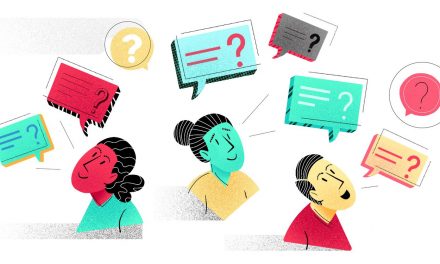Crowdfunding has become popular locally in recent months due to the many events that have unfolded. Especially from the time of the Cyclone Idai disaster crow funding has been quite prevalent. What’s crow funding by the way? Crowdfunding involves the mobilization of funds from a pool of people who contribute varying amounts towards a cause. Crowdfunding is an activity typically done through the internet usually through sites dedicated for that or other methodologies. You might have heard of the term ‘crowdsourcing’ – crowdfunding is a type of crowdsourcing. Some of the globally renowned crowdfunding sites are GoFundMe, Kickstarter and Indiegogo.
Why Crowdfunding Is Important
Crowdfunding is vital in that it creates a platform for anyone to raise funds for any legitimate cause. Many times people fail to embark on certain ventures e.g. business or academics due to lack of funding. Through crowdfunding, you can raise the required funds if people buy into your pitch. Locally we have witnessed crowdfunding for several years; only that it has been somewhat different from the new age ones that occur through dedicated sites. Throughout your life, you must have at some point heard of calls for assistance on TV or radio or in print media for medical cases i.e. funds for costly surgical procedures.
Recently we have also seen a wave of crowdfunding that leverages on the use of social media. Kuda Musasiwa triggered social media-based initiatives where young people that had passed their A’ levels exceptionally but failed to proceed due to funds got funding through crowdfunding. During the Cyclone Idai disaster, we also saw many forms of crowdfunding some of which took a virtual notice with a call for help and an Ecocash biller code (Econet did this and so did many others). GoFundMe was also used to raise quite a substantial amount of money for the victims. So crowdfunding basically enables well-wishers to contribute towards worthy causes especially for those in need. However, it has far-reaching applications beyond charity as places like Kickstarter and Indiegogo connect people with business ideas to funding.
The Question Of Legitimacy
This is probably the most pertinent question when it comes to any crowdfunding initiative. Is the crowdfunding initiative legitimate? Usually, the platform being used is central to answering that question. For instance, it was easy for most people to contribute through the Ecocash biller code sent out by Econet because they trusted that their reputation as a big brand would guarantee responsible handling of the money. That’s why you find platforms like GoFundMe being used all across the world because they are reputable platforms that people can trust. It’s for quite a while now that I’ve thought we also need to have such platforms like GoFundMe that are home-grown.
This thought struck me hard when there were diasporans who had contributed substantial funds towards Cyclone Idai victims through GoFundMe but there were challenges in accessing the money this side due to exorbitant charges. I remember the guys who had mobilized people to contribute were requesting for a discount on payment processing in order to not lose some of it since it was really needed for the victims. All these hurdles wouldn’t have happened if people in the diaspora had had the option to send funds through a local Zimbabwean crowdfunding site. That’s what got me seriously thinking that we need to have our own home-grown crowdfunding sites. I’m glad today to let you know that we now have a recently launched crowdfunding site called Funded.
Funded
This is a platform developed to assist anyone raises money online for any worthy cause be it capital for business/projects or school fees. You’ll be able to do this by getting donations from different people through the site for free. The founder and builder of the site did indicate that it might be hard to get this idea out there and thus would need people to help spread awareness of its existence. That’s the whole purpose of this article anyways and I believe we’ll help spread the word about it. Presently the portal on the site to be used for fundraising is not yet open. They’re still focusing on raising awareness and then once the word has spread-out the commencement of crowdfunding initiatives becomes imminent. At the moment you can browse through the website to see its features and all.
Once the site is now in full swing you’ll be able to raise money for academics, charity, memorials and medical bills. You’ll start off by creating a fundraising campaign. Then you’ll have to pitch or give a detailed account of your situation in order for people to deem your campaign legitimate. For instance, if you’re raising funds for medical bills, uploading medical statements or invoices indicating the amount of money needed will help substantiate your campaign. After that, you can then share your campaign link all across social media and the internet to reach more people. Once the goal is reached you’ll then be able to withdraw the money.
This is quite an exciting innovation which has come at the right time. I also suppose they need assistance in order to fast-track the innovation so that it takes off. I, for one, am totally behind this initiative – I was looking forward to something like this. Zimbabweans have been a crowdfunding nation long before it became a technology phenomenon. It takes a village to raise a child and we have been doing this for time immemorial. Many children have been sent to school and university through families pooling resources to fund them. Likewise, the system of “chema”, crowdsourcing money from friends and family for the family of a deceased person is a well-established practice. This advent brings our traditional norms to technology. The founder of Funded is Keith Mlauzi and can be contacted on keithmlauzi@gmail.com or +263777968251.








